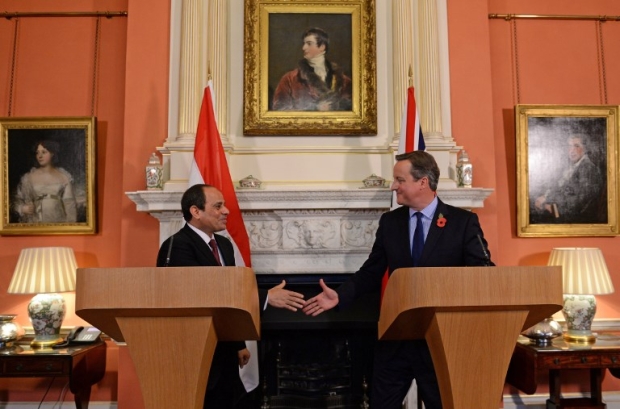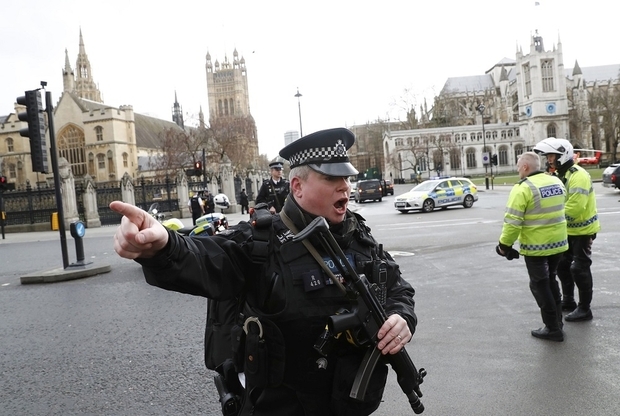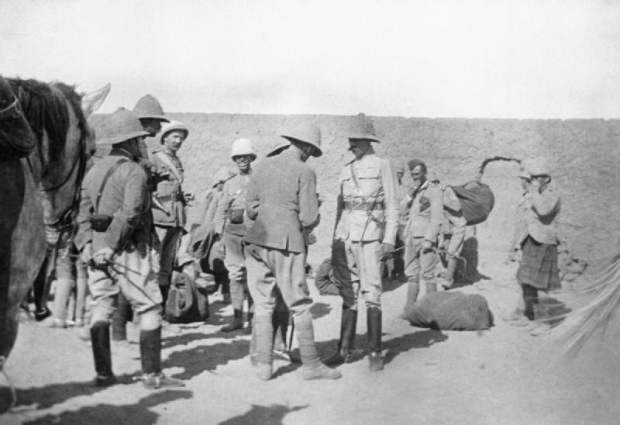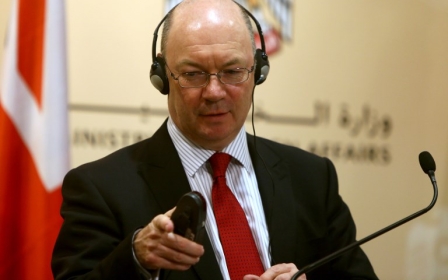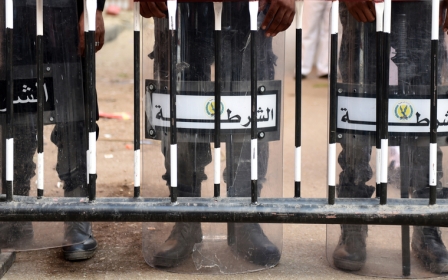The British U-Turn on Egypt - and what's behind it
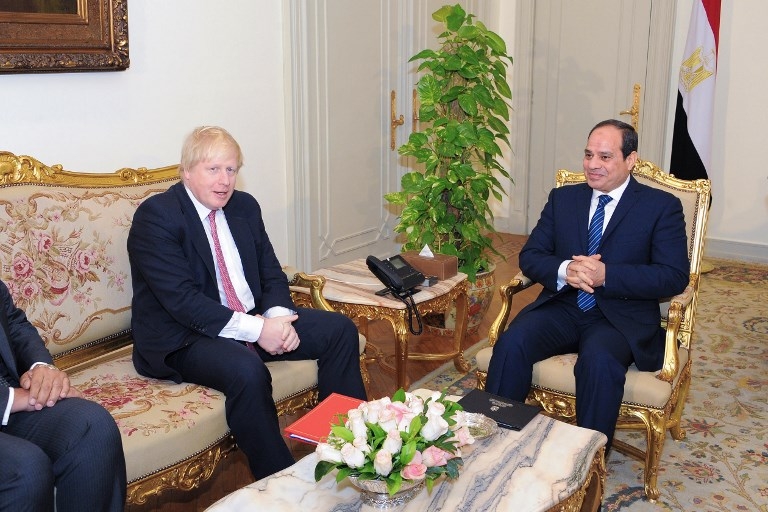
In the past few weeks, British officials have made statements and moves which have mostly lent strong support to the current Egyptian regime - and ones which ignore the growing violations, perpetrated constantly and methodologically, by the regime against Egyptian citizens.
Instead, British officials levelled charges against political Islam in general and the Muslim Brotherhood (MB) in particular. These moves seem to indicate a new approach on the part of the current British government toward Egypt that is worth analysing.
In the wake of the 3 July 2013 military coup, British foreign policy toward the Egyptian regime was somewhat reserved. Although British officials failed to call the toppling of Egypt’s first elected civilian president a coup, they observed caution in dealing with the new regime. Sisi was not officially received in London and did not meet former UK Prime Minister David Cameron until November 2015.
In December 2015, the UK government announced that the review had been completed. On the final day of parliament before the Christmas holiday, David Cameron released a written statement followed by the release of an 11-page summary of the report's conclusion which noted that affiliating with the Muslim Brotherhood or associating with it could be considered a possible indication of extremism. With parliament adjourning, there was no room left for discussion.
It was interesting that the publicised conclusions were in no way linked to any possible Muslim Brotherhood involvement in violence or terrorism. And, until now, the original report has yet to be published in full, casting doubts on the credibility of Cameron's statement and the report's summary, especially in light of leaked information that suggested that the report was not only fair to the Brotherhood but that it also commended the role the group played in combatting extremism inside Britain.
Ultimately, the UK government didn't take any measures against the Brotherhood, nor against any of its members in Britain, despite the conclusions that were presented to the House of Commons.
Until now, the Muslim Brotherhood review has yet to be published in full, casting doubts on the credibility of Cameron's statement and the report's summary
Furthermore, British immigration authorities decided in August 2016 that it was possible for Brotherhood members to apply for asylum in Britain, a clear acknowledgment that the organisation’s affiliates were being persecuted by the Egyptian regime and did not pose any danger to Britain. Further, this was seen as confirmation that the British government intended no further measures against the group in consequence of the review and its conclusions.
In November 2016, the House of Commons’ Foreign Affairs Committee, which was at that time chaired by MP Crispin Blunt, criticised the UK Foreign Office and its approach to the Brotherhood review conducted by Jenkins. The committee did not rule out the possibility that a foreign country might have had unacceptable influence on the review while it was being conducted. This was an indirect hint to the pressures exercised by the United Arab Emirates and Egypt in order for the Jenkin’s review to conclude with condemning the Brotherhood.
Eventually, the parliamentary committee’s own review, which even won the support of the British Foreign Office, concluded that the Brotherhood should not be designated as a terrorist organisation or labelled as a group that calls for violence or adopts an extremist methodology.
Connecting the dots
The past few weeks have seen several new developments. These include a series of foreign trips, articles and press statements by current and former British officials, which clearly indicate that a change has taken place in Britain's cautious approach towards the post-coup regime in Egypt. The two sides are making moves towards a more open relationship, proceeding with investments and forging future partnerships.
Above all, there has been a clear inclination against so-called political Islam and, more specifically, against the Brotherhood. The new shift is clearly evident in a series of consecutive events.
First, in early June 2017, Jenkins published an article on the conservative website Policy Exchange. In his piece, Jenkins abandoned his balanced and objective remarks about the Muslim Brotherhood that seemed to mark his assessment while he headed the British government’s review commission.
But what really caught one's attention in his piece was the absence of any reference to the massacres and crimes perpetrated in the aftermath of the military coup against Brotherhood sympathisers and supporters, violations which have continued and have been increasing ever since.
Then, in a step that took many British circles by surprise, but apparently delighted neoconservatives, parliament voted to dump Crispin Blunt and replace him with the relatively unknown MP Tom Tugendhat.
This happened just a few months after the foreign affairs committee, under Blunt's leadership, criticised the British government over the Brotherhood review and agreed that the group should not be designated as a terrorist organisation, nor accused of extremism.
Most likely, it was Blunt’s stances - his criticism of the Israeli lobby and also those working on behalf of some of the Gulf states - that cost him his position. Just watch Al Jazeera's documentary ‘The Lobby’ which clearly illustrates the power of the Israeli lobby within Britain.
Blunt, the film argues, was one of the British politicians most disliked by Israel which sought to discredit him because his opinions were, according to an Israeli embassy official whose conversations were secretly recorded in the film, heavily biased in favour of the Arabs instead of Israel.
Visits to Cairo
Last month, Alistair Burt, UK minister of state for the Middle East and North Africa, visited Egypt. Shortly before he arrived, he published an article in Arabic in the Egyptian Al-Ahram newspaper in which he clearly called for British cooperation with the Egyptian regime.
He also levelled outrageous accusations against the Brotherhood and issued threats to the group’s members who reside within the United Kingdom saying: “Strict measures will be imposed to observe the conduct and activities of the Muslim Brotherhood including their visa applications. The sources of funding their charities will also be monitored together with the international relations network of the organisation.”
The British ambassador to Egypt, John Casson, celebrated Burt’s article in a 24 August tweet.
For a British official, publishing an article in Arabic without publishing an original English language version is odd. It would seem to suggest that Burt sought to deliberately conceal the contents from British readers because of the language of appeasement used in dealing with the Egyptian regime.
At the same time, the remarks in the article contravene the general policy adopted until fairly recently by the British government and contradicts the British values and principles that uphold democracy.
Burt’s visit to Cairo coincided with another visit, the first of its kind, by British Foreign Secretary Boris Johnson to Benghazi where he met with retired general Khalifa Haftar, chief of the so-called Libyan National Army. Haftar, who is a strong ally of the current Egyptian regime, is accused by numerous international human rights organisations and legal entities of perpetrating war crimes against Libyans.
During their meeting, Johnson asked Haftar to play a role in the Libyan political process. The visit is seen as a form of political recognition of Haftar paving the way for doing business with him.
In addition to the military and political support Haftar receives from Egypt and the United Arab Emirates, Johnson’s visit grants him additional international recognition as a partner in any forthcoming political settlement of the Libyan crisis despite his aberration from the national consensus represented by the national government that was born out of the UN-sponsored Al-Skhairat meetings.
Two days after Burt’s visit to Egypt, Charles Farr, chairman of the Joint Intelligence Committee and head of the Joint Intelligence Organisation at the British Cabinet Office, visited Egypt on 26 August. It seemed clear that the visit was part of the new initiative launched by Burt. Security cooperation between the Egyptian and British sides was reportedly discussed during the visit.
It is worth noting that Farr was part of the committee, along with Jenkins, which reviewed the Brotherhood's activities and the extent to which they posed a danger to Britain. Informed sources have told me that the section for which Farr was responsible in the review praised the Brotherhood for the role is has played within Britain in the efforts to combat extremism and cited specific and well-documented incidents.
Finally, at the beginning of this month, British ambassador to Cairo John Casson announced that a British trade delegation would visit Cairo in the coming weeks to open new horizons for investment in Egypt. He added that an announcement would be made during the visit about a new package of British investments in local infrastructure and including companies that will invest in the country for the first time.
The British government is opening the doors for deals and contracts, reaping material gains of its support, completely disregarding the crimes and violations perpetrated by the regime.
Why the policy swing
In light of the statements and visits made by British officials who had been to Egypt recently, one can detect several possible motives that might explain the new trend in British foreign policy toward the Egyptian regime and, consequently, toward the Middle East in general.
To begin with, the terrorist attacks in Manchester and London in May and June resulted in a wave of criticism regarding the manner in which the British government has dealt with Islamists in general. This explains the statements from British officials about the association of political Islam with the terrorist attacks across Europe and, more broadly, in the world. They have resorted to this discourse in order to justify improved ties with authoritarian governments in the region, especially in the field of security.
In 2014, the UK's ambassador to the UAE warned the British chairman of the Manchester City football club that the UK was “not seeing [the Brotherhood] as we do: an existential threat not just to the UAE but to the region". Are we today facing a new wave of UAE pressure?
Naturally, one cannot ignore the pressure exercised by the Israeli lobby in Britain. The current Egyptian regime, of course, happens to be one of the most important Israeli allies in the region.
Britain’s exit from the European Union may also explain new trends in its foreign policy, particularly in the Middle East. As part of its priorities during the forthcoming period, Britain will seek new interests and deals to compensate for the losses it is likely to incur as a result of leaving the EU. In abandoning its cautious approach towards the Egyptian regime and granting political recognition to Haftar, the UK may be hoping to obtain agreements and further deals and investments in the region.
Motivating factors
Ultimately, the strategic relations between Britain and the Gulf states - an extension of Britain's traditional colonial role with all its historic, ideological and geostrategic dimensions - renders the return of Britain to the region and its explicit support for authoritarian regimes, even if these relationships are as distant as one can imagine from the democratic principles and values to which Britain claims to adhere.
Yet, this may be understood in light of Britain’s endeavour to preserve its interests, gains and influence in the region, something it has never relinquished since its colonial days in the Middle East region.
Torture charges
There have recently been several international reports that confirm the perpetration by the Egyptian regime of criminal acts. The most recent of these reports released by Human Rights Watch this month details the systematic torture which Egyptian security agencies have practiced under policies ordered by Abdel Fattah al-Sisi himself. These weren't just interrogation tools, but methods to control and manipulate the Egyptian people, to keep Sisi in power.
Prior to that, the United Nations Commission on Human Rights issued its anti-torture report, which also confirmed that torture was being used in a systematic manner in Egypt. Whoever is directly involved in or even encouraging or defending the perpetration of these crimes should be prosecuted.
Such legal proceedings will not spare world politicians who chose to lend support or give backing to these criminals since they would be considered collaborators in these acts by virtue of providing an international cover for the perpetration of crimes that cause enormous suffering to many Egyptians and that are considered by international human rights organisations to be crimes against humanity.
- Amr Darrag is the chairman of the Egyptian Institute for Political and Strategic Studies and the former Minister of Planning and International Cooperation in Egypt.
The views expressed in this article belong to the author and do not necessarily reflect the editorial policy of Middle East Eye.
Photo: Egyptian President Abdel Fattah al-Sisi meeting with British Foreign Secretary Boris Johnson at the Presidential palace in Cairo in February 2017 (AFP/Egyptian Presidency)
New MEE newsletter: Jerusalem Dispatch
Sign up to get the latest insights and analysis on Israel-Palestine, alongside Turkey Unpacked and other MEE newsletters
Middle East Eye delivers independent and unrivalled coverage and analysis of the Middle East, North Africa and beyond. To learn more about republishing this content and the associated fees, please fill out this form. More about MEE can be found here.



